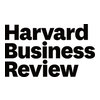Digital Transformation Is About Talent, Not Technology

As The Economist recently noted, one of the most obvious consequences of the current Covid-19 pandemic will be "the infusion of data-enabled services into ever more aspects of life." We expect digital transformation to be an even bigger imperative for organizations in the short-term future.
Contrary to popular belief, digital transformation is less about technology and more about people. You can pretty much buy any technology, but your ability to adapt to an even more digital future depends on developing the next generation of skills, closing the gap between talent supply and demand, and future-proofing your own and others' potential.
As it turns out, most of us end up in jobs and careers for serendipitous reasons, and stay in them for a long time, rarely pausing to rethink our potential: Am I in the right job? Is my career the best fit for by interests and abilities? Would I enjoy my life more if I had chosen something else? Furthermore, while every job requires learning, we are prewired for familiarity, routine, and simplicity, which is why most of us end up learning less on the job, the more time we actually spend on the job. This is good in the short run, because we can do our jobs on autopilot, freeing up mental resources; yet it's counterproductive in the long run, because what we gain in experience, we miss in new learning opportunities. An even bigger loss is that we may go through our entire working lives without discovering, let alone unlocking, our true potential. As Winston Churchill once said, we should never waste a good crisis. Perhaps this is the biggest gift of the current pandemic, that it provides us with the opportunity to rethink our potential and ensure that we are positioning ourselves toward the future. To be sure, it is too soon for most people to realize this, yet in the long-term, a significant number of people will likely end up in better careers and look back on their less meaningful and less engaging past careers like someone who looks back without regret on the end of a less fulfilling personal relationship, even one where it wasn't their choice to exit.
